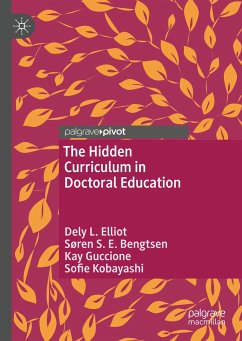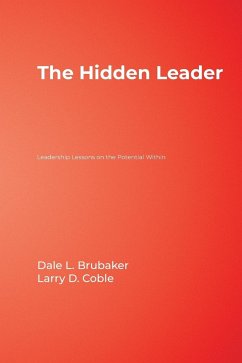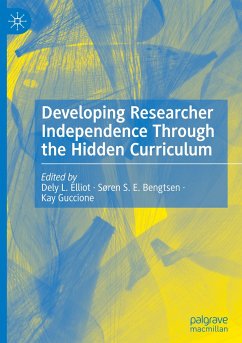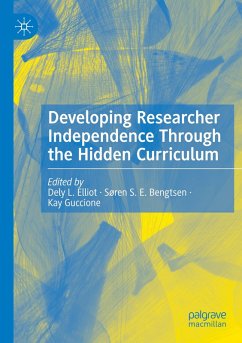
Hidden in Plain Sight
Realizing the Full Potential of Middle Leaders
Versandkostenfrei!
Versandfertig in 1-2 Wochen
21,99 €
inkl. MwSt.

PAYBACK Punkte
11 °P sammeln!
Middle leaders, either through curiosity, career-mindedness, or even coercion, accepted a role that is poorly defined, has limited or no authority, and comes with a huge target for colleagues and senior leaders to set their sights on. The expressions "Don’t shoot the messenger" and "We are all in this together" are common mottos. These are the middle leaders I want to capacity to be agents for transformational change: grade-level and subject team leaders, department heads, coordinators, and any other role tasked with making sure teachers work interdependently to improve student learning. Thi...
Middle leaders, either through curiosity, career-mindedness, or even coercion, accepted a role that is poorly defined, has limited or no authority, and comes with a huge target for colleagues and senior leaders to set their sights on. The expressions "Don’t shoot the messenger" and "We are all in this together" are common mottos. These are the middle leaders I want to capacity to be agents for transformational change: grade-level and subject team leaders, department heads, coordinators, and any other role tasked with making sure teachers work interdependently to improve student learning. This book will help senior leaders empower middle leaders to take ownership of school change initiatives, by: understanding how to select middle leaders, differentiating expectations for middle leaders and identifying the skills and knowledge middle leaders need to lead change. Middle leaders will learn how to advocate for themselves and their team, by being able to: define their role, understand how their role changes as the team develops and harness conflict to leverage the individual skills and experience of all team members.














